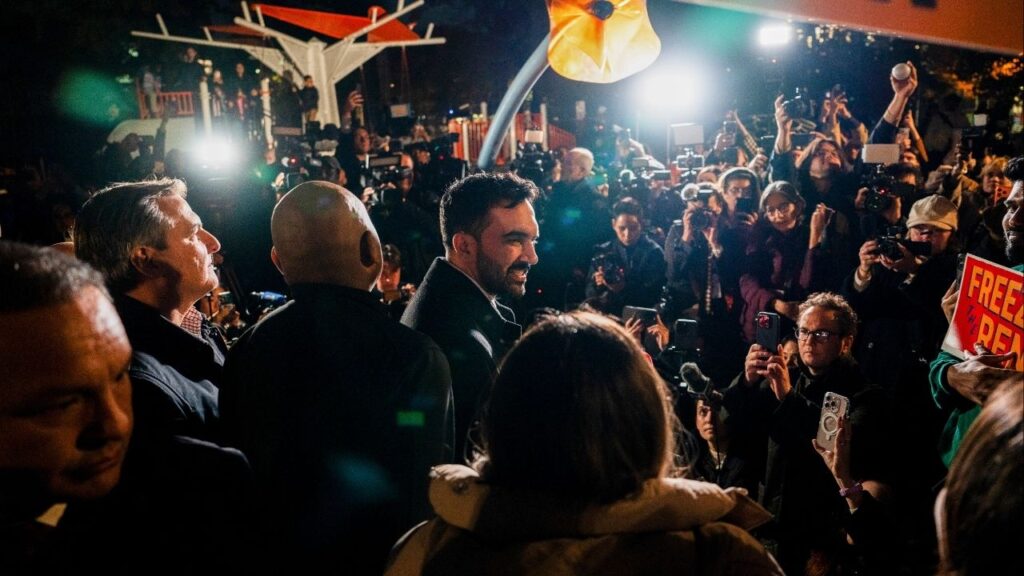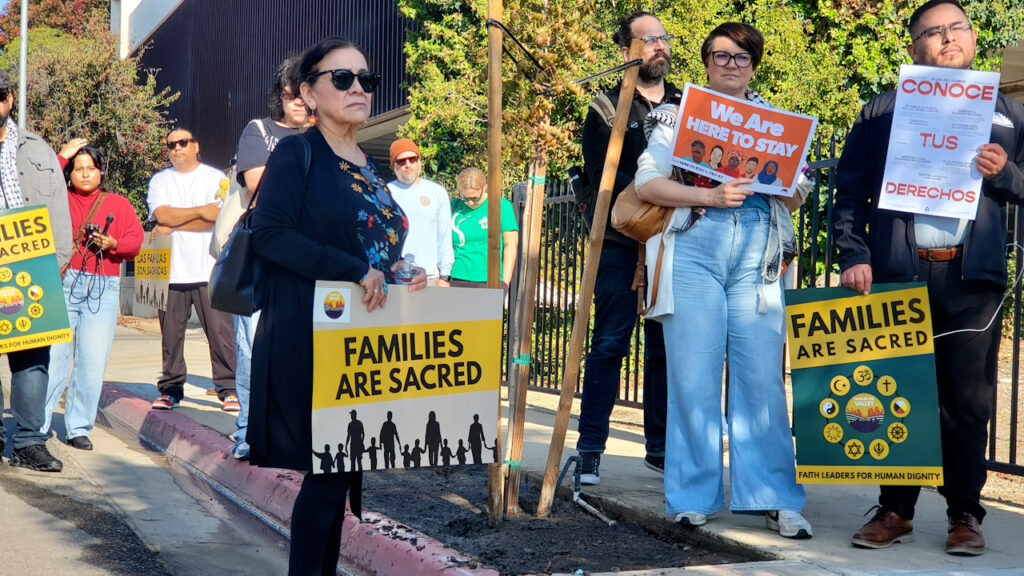A cross sits atop the Archdiocese of Oklahoma City in Oklahoma City, Oklahoma, U.S. April 30, 2025. REUTERS/Nick Oxford

- Supreme Court's 4-4 split decision, with Justice Barrett's recusal, maintains block on first religious charter school in U.S.
- Oklahoma's proposed Catholic virtual school faced opposition over First Amendment concerns and state funding of religion.
- Case highlights ongoing tension between religious freedom and separation of church and state in American education.
Share
WASHINGTON (Reuters) – A split U.S. Supreme Court on Thursday blocked a bid led by two Catholic dioceses to establish in Oklahoma the nation’s first taxpayer-funded religious charter school in a major case involving religious rights in American education.
With conservative Justice Amy Coney Barrett recusing herself from the case, the 4-4 ruling left intact a lower court’s decision that blocked the establishment of St. Isidore of Seville Catholic Virtual School. Oklahoma’s top court found that the proposed school would violate the U.S. Constitution’s First Amendment limits on government involvement in religion.
Barrett’s decision not to participate in the case left eight justices rather than the full slate of nine to decide the outcome. Barrett did not publicly explain her recusal but she is a former professor at Notre Dame Law School, which represents the school’s organizers.
Supreme Court’s Split Decision
When the Supreme Court is evenly divided, the lower court’s decision stands. The justices did not provide a rationale for their action in the unsigned ruling.
Set up as alternatives to traditional public schools, charter schools typically operate under private management and often feature small class sizes, innovative teaching styles or a particular academic focus. Charter schools are considered public schools under Oklahoma law and draw funding from the state government.
The Supreme Court has a 6-3 conservative majority. Barrett’s absence was key to the outcome in the case. The issue of the establishment of a religious charter school could return to the Supreme Court in the future to be heard before all its members.
Constitutional Tensions at Play
During April 30 arguments in the St. Isidore case, divisions between the three liberal justices and the conservative justices who participated were laid bare as they explored the tensions between the First Amendment’s two religion clauses.
Its “establishment clause” restricts government officials from establishing or endorsing any particular religion or promoting religion over nonreligion. Its “free exercise” clause protects the right to practice one’s religion freely, without government interference.
On balance, the five conservative justices who heard the case signaled sympathy during the arguments toward the proposed St. Isidore school, though Chief Justice John Roberts struck a note of ambivalence, posing tough questions to lawyers on both sides of the dispute.
Roberts told James Campbell, a lawyer for the state’s charter school board, that the Supreme Court’s religious liberty rulings in recent years involved limited state benefits, such as playground improvements, tuition and tax credits.
“This does strike me as a much more comprehensive involvement,” Roberts said.
Legal and Political Implications
St. Isidore, planned as a joint effort by the Catholic Archdiocese of Oklahoma City and Diocese of Tulsa, sought to offer virtual learning from kindergarten through high school. Its plan to integrate religion into its curriculum stood to make it the first religious charter school in the United States. The proposed school has never been operational amid legal challenges to its establishment.
Patrick Elliott, legal director at Freedom From Religion Foundation, a group that advocates for the separation of church and state, welcomed the outcome on Thursday.
“We are pleased that the Supreme Court has let stand the Oklahoma Supreme Court decision that a religious school cannot become a public charter school,” Elliott said. “The creation of a Catholic public charter school clearly violated state law and the requirement that public schools must be open to all students.”
‘The Founders of Our Country’
Oklahoma’s Republican Attorney General Gentner Drummond sued in October 2023 to block St. Isidore in a legal action filed at the Oklahoma Supreme Court, saying he was duty bound to “prevent the type of state-funded religion that Oklahoma’s constitutional framers and the founders of our country sought to prevent.”
Republican Oklahoma Governor Kevin Stitt backed the proposed school, as did Republican President Donald Trump’s administration.
Opponents have said religious charter schools would force taxpayers to support religious indoctrination. Establishing them also could undermine nondiscrimination principles, they argued, because religious charter schools might seek to bar employees and even students who do not adhere to doctrinal teachings.
The Oklahoma charter school board in June 2023 approved the plan to create St. Isidore in a 3-2 vote.
Oklahoma’s top court in a 6-2 ruling last year blocked the school. It classified St. Isidore as a “governmental entity” that would act as “a surrogate of the state in providing free public education as any other state-sponsored charter school.”
That court decided that the proposal ran afoul of Oklahoma law and the establishment clause. The First Amendment generally constrains the government but not private entities.
St. Isidore, the court wrote, would “require students to spend time in religious instruction and activities, as well as permit state spending in direct support of the religious curriculum and activities within St. Isidore – all in violation of the establishment clause.”
School board officials and St. Isidore told the justices that the Oklahoma court erred by deeming St. Isidore an arm of the government rather than a private organization. They argued that the government had not delegated a state duty to St. Isidore merely by contracting with it, and that the school would function largely independently of the government.
They also argued that Oklahoma’s refusal to establish St. Isidore as a charter school solely because it is religious is discrimination under the free exercise clause.
The Supreme Court ruled in a Missouri case in 2017 that churches and other religious entities cannot be flatly denied public money based on their religious status – even in states whose constitutions explicitly ban such funding.
In 2020, it endorsed Montana tax credits that helped pay for students to attend religious schools. In 2022, it backed two Christian families in their challenge to Maine’s tuition-assistance program that had excluded private religious schools.
–
(Reporting by John Kruzel; Additional reporting by Andrew Chung; Editing by Will Dunham)
RELATED TOPICS:
Categories

Turnout High as Voters Decide Mayor’s Race



















